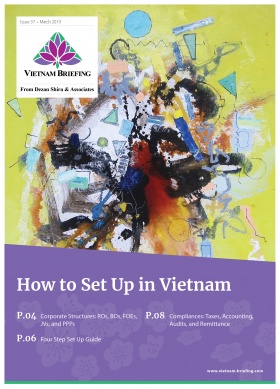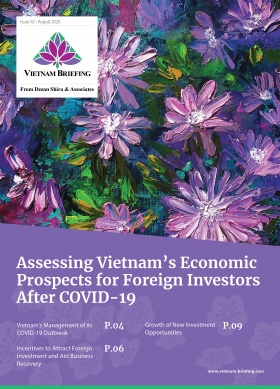Vietnam Unveils Third Wave of Business Reforms: Resolution 68
- Vietnam issued Resolution 68 aimed at cutting or simplifying 20 percent of business procedures for the 2020-2025 period.
- The government has reiterated a clear implementation strategy with a special focus on digitization and the electronic handling of administrative procedures.
- If implemented correctly, this third wave of reforms will further propel Vietnam’s economy and savings as a result of reducing time-consuming and cumbersome regulatory business procedures.
The Vietnamese government recently announced its plan to implement Resolution 68/NQ-CP (Resolution 68) on cutting or simplifying business procedures from the 2020-2025 period. This also includes cutting at least 20 percent of business procedures compliance costs.
The development came at a press conference and was stated by Minister-Chairman of the Government Office Mai Tien Dung on September 30.
While the resolution was released in May, the announcement shows the government’s commitment in further improving Vietnam’s business environment.
Third wave of business reforms
Dung noted that this was the third wave of reforms that the government was embarking upon. In the first wave between 2007-2010, Vietnam simplified 4,818 of 5,421 administrative procedures, which helped in savings of approximately US$1.3 billion (VND 30 trillion). Between 2016-2020 more than 3,890 out of 6,191 business procedures were simplified with savings of approximately US$272 million (VND 6.3 trillion) known as the second wave of reforms.
Implementing Resolution 68 is clubbed as the third wave of reforms.
Nevertheless, he also noted that some reforms remained slow and there was a lot of room for improvement. Import-export businesses for example noted that while e-customs procedures were implemented, many other procedures require paper-based documents effectively negating the positive effects for e-procedures.
Highlights of Resolution 68
As mentioned earlier, Resolution 68 seeks to cut down 20 percent of business regulations and costs for businesses for regulations that are in effect as of May 31, 2020. Further, the list of these documents that are to be simplified must be announced before October 31, 2020.
In addition, some notable points:
- Government to control the release of new legal documents and avoid unnecessary and unreasonable regulations;
- Starting this year, government agencies would use software that provide adequate and accurate updates on business regulations and costs. This can then be used as a base for reviewing the regulation and further simplifying them. Priority would be given to imported and exported products;
- A dialogue between government agencies and businesses would be increased so that the simplification of business procedures could be improved so that businesses can benefit;
- Annually, government ministries and agencies will be required to implement the plans proposed to reduce or simplify regulations related to business procedures. This will also involve assessing the proposal and reviewing the program for the 2020-2025 period and implementing a communication plan to inform businesses during the period.
- Promote and implement Decree No 61/2018/ND-CP and Decree No. 45/2020/ND-CP as a one-stop-shop for administrative procedures and implement online services for connection and integration of public services.
To implement and track the implementation of these plans, government agencies will be required to submit their action plans in two phases – once on May 30 and the other before September 30 every year to the Prime Minister’s office for approval. Government agencies will also be required to make a report on the progress of the simplified procedures, which will need to be submitted in half-year intervals of June 25 and December 25 every year.
Special focus on digitization
The government has made a special focus on digitization and the electronic handling of administration administrative procedures. This transition from paper to digital would help further reducing costs for businesses. This is in line with the government’s recently introduced National Digital Transformation Program by 2025, aiming to create a digital government, digital economy, and digital society while establishing globally competitive digital businesses.
Resolution 68: Clear commitment to streamline and simplify regulations
If implemented correctly, Resolution 68 has the potential to deliver benefits tackling red tape and bureaucracy while realizing commercial opportunities for foreign investors by having more confidence in the business environment in Vietnam. The government seems on the right track with the endorsement of the Prime Minister. The resolution has a clear implementation plan with strong engagement by the government agencies.
About Us
Vietnam Briefing is produced by Dezan Shira & Associates. The firm assists foreign investors throughout Asia from offices across the world, including in Hanoi and Ho Chi Minh City. Readers may write to vietnam@dezshira.com for more support on doing business in Vietnam.
- Previous Article Vietnam setzt sich ehrgeizige Ziele in der neuen nationalen Industriepolitik. Kann es konkurrenzfähig bleiben?
- Next Article FDI Data Shows Vietnam’s Steady Economic Growth































